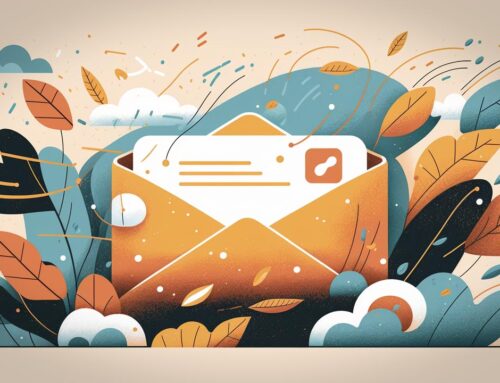Email marketing remains one of the most effective strategies for businesses to engage with their customers, nurture leads, and increase conversions. In an age where digital communication is king, mastering email marketing can be a game-changer for your business. This article will provide an in-depth look at email marketing best practices and strategies that will help your business engage customers, increase conversions, and ultimately, boost sales.
By understanding the nuances of email marketing, you’ll gain a powerful tool that can help you reach your customers directly, build lasting relationships, and promote your products or services in an efficient and cost-effective manner. This article will cover everything from the basics of setting up an email marketing campaign, to the strategies and techniques that can help you tailor your emails to your audience and optimize your conversion rates.
This guide to mastering email marketing will explore topics such as the importance of segmenting your audience, the art of crafting compelling subject lines and content, the use of email analytics to track and optimize your campaigns, and much more. Whether you’re new to email marketing or looking to refine your existing strategy, this article will provide valuable insights and actionable tips that you can use to boost your email marketing game.
Table of Contents
- The Importance of Email Marketing
- Building an Email List
- Segmenting Your Audience
- Crafting Compelling Emails
- Email Analytics and Optimization
- Automating Your Email Campaigns
- Email Marketing Legal Considerations
- Final Thoughts
- Sources
The Importance of Email Marketing
In the digital age, email marketing stands as a vital component of effective marketing strategies. With over 4 billion email users worldwide, it’s a direct line to a vast number of potential customers. Beyond sheer numbers, email marketing provides a number of advantages:
- Cost-Effectiveness: Email marketing generally offers a high return on investment (ROI). According to Campaign Monitor, every $1 spent on email marketing typically generates $38 in ROI.
- Personalization: Email allows for a high degree of personalization. You can segment your audience and tailor messages to different customer groups, leading to higher engagement and conversion rates.
- Measurability: With detailed analytics available, you can easily track opens, clicks, and conversions to understand your campaign performance and make data-driven decisions.
Building an Email List
The success of your email marketing campaign begins with building a robust email list. Here are some strategies:
- Website Opt-In Forms: Place email signup forms on your website—on the homepage, blog, or footer—to capture visitor information.
- Content Upgrades: Offer additional value (like e-books, whitepapers, or guides) in exchange for email addresses.
- Social Media Campaigns: Use your social media platforms to promote sign-ups.
Segmenting Your Audience
Segmentation involves dividing your email list into smaller, more targeted groups. This allows for more personalized and relevant content, leading to higher engagement rates. Segmentation can be based on:
- Demographics: Age, location, gender, etc.
- Behavior: Past purchases, website activity, email engagement, etc.
- Psychographics: Interests, preferences, and attitudes.
Crafting Compelling Emails
Creating compelling emails is both an art and science. Key components include:
- Subject Lines: Craft compelling and personalized subject lines to increase open rates.
- Content: Keep your content relevant, engaging, and valuable to your audience.
- Call-to-Action (CTA): Make your CTA clear and compelling to drive conversions.
Email Analytics and Optimization
Understanding and leveraging email analytics is crucial for campaign success. Key metrics to monitor include:
- Open Rate: The percentage of recipients who open your email.
- Click-Through Rate (CTR): The percentage of recipients who click on a link within your email.
- Conversion Rate: The percentage of recipients who complete the desired action (like making a purchase or filling out a form).
- Bounce Rate: The percentage of emails that were not successfully delivered to the recipient’s inbox.
Use these metrics to identify what’s working and what’s not, and adjust your strategy accordingly.
Automating Your Email Campaigns
Email automation can save you time and increase efficiency. Automating emails based on triggers (like sign-ups, purchases, or cart abandonment) can help you send the right message at the right time.
Email Marketing Legal Considerations
Ensure your email marketing practices comply with relevant regulations such as the CAN-SPAM Act in the US, GDPR in the EU, or CASL in Canada. These laws typically require transparency, the option for recipients to unsubscribe, and respect for user data privacy.
Final Thoughts
Effective email marketing goes beyond simply sending emails—it requires understanding your audience, crafting personalized content, monitoring key metrics, and continuously optimizing your strategy. With these best practices, you can turn email marketing into a powerful tool for customer engagement and sales growth.
Sources
- Statista: Number of Email Users Worldwide
- Campaign Monitor: Email Marketing ROI
- HubSpot: The Ultimate Guide to Email Marketing
- Constant Contact: The Download – Making Sense of Online Marketing
- GetResponse: Email Marketing Mastery
- Federal Trade Commission: CAN-SPAM Act
- European Commission: Rules on Data Protection EU – GDPR
- Government of Canada: Canada’s Anti-Spam Legislation
By implementing these best practices and strategies, your business can leverage email marketing as a powerful tool for customer engagement, brand loyalty, and sales growth. The mastery of email marketing is a journey, one that involves continuous learning, testing, and optimization. However, with a clear understanding of the principles laid out in this guide, you’re well on your way to boosting sales through targeted email campaigns. Happy emailing!






online inbound marketing
I highly recommend this blog to anyone who wants to learn more about business-related topics. It’s been so helpful for me. If you want to learn about business information